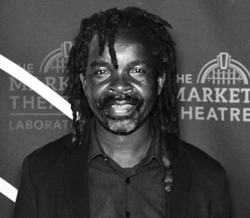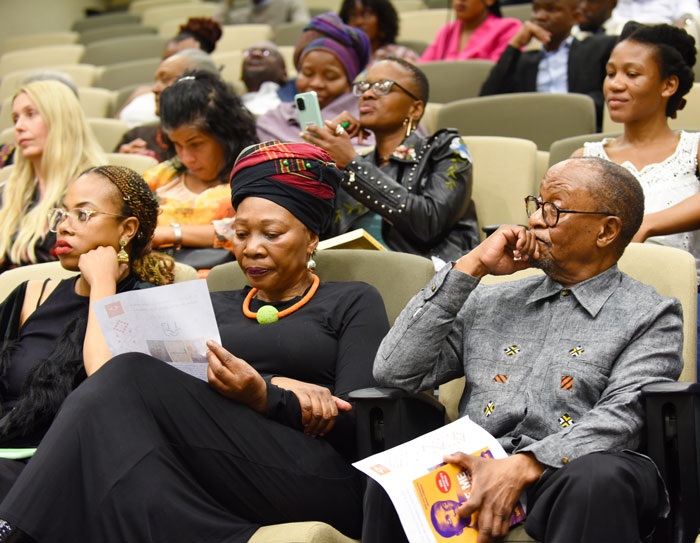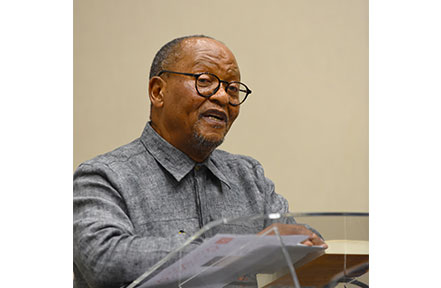Njabulo Ndebele laments the state of black people in the township at launch of Bloke Modisane’s book Blame Me on History
By Edward Tsumele, CITYLIFE/ARTS Editor

Black people during Apartheid were farmed on the settlements they call townships to simply provide labour to white businesses, and up to a certain extent in contemporary South Africa the same living conditions that prevailed then exist.
This was said by well-respected community leader, academic and writer Professor Njabulo Ndebele at the relaunch of the late Drum writer and actor Bloke Modisane’s seminal book, Blame Me on History at the University of Johannesburg on Friday, 15, September 2023.
Ndebele likened the situation black people found themselves then to that of roosters that he and his family kept, and from time to time, especially when his family were hosting visitors, they would kill such roosters to feed the visitors. This caused immense discomfort among especially the young in the Ndebele household, who had developed a relationship with these chickens.

“There was one big rooster, which during its prime could fight successfully the young ones, but sadly as it got older it was overpowered by the young to our pain and disappointment, and when we eventually killed it, we could not bring ourselves to eat it. Rather we gave it to our neighbours to eat. These chickens had personality. The conditions of the chickens were therefore similar to those of the black people settled in the townships, whose presence there was to provide labour to white people,” Ndebele explained.
However he explained that the story of the chickens was in fact not his idea, but that of his playwright son Makhaola Ndebele.
“In post-apartheid South Africa there is a nice word to describe similar living conditions to the ones that Modisane wrote about –they are called informal settlements. Although we understand why these settlements exist, in reality they are actually a reproduction of similar conditions under which black people lived during apartheid,” Ndebele said. Ndebele wrote the foreword to Blame Me on History, having been asked to do so by the man behind the republication of this book, Siphiwo Mahala, who teaches English at the University of Johannesburg.
Mahala himself in 2023 published in important book on Can Themba titled Can Themba: The Making and Breaking of an Intellectual Tsotsi, a biography of the late Drum writer who died in Swaziland. Mahala got a doctorate degree for his efforts. And just like Modisane, Can Themba died under difficult circumstances as his writing was banned in South Africa and was forced to leave the country ending up in Swaziland where he died as a broken man who turned to excessive consumption of alcohol to copy with his difficuklty situation.
Modisane however left the country illegally via Botswana and later found himself in the US. It is the first time that this book has been republished in South Africa since its banning during apartheid, coming a few days before what could have been Modisane’s 100th year birthday, Mahala explained at the launch. The launch also coincided with the award of the UJ Prize to a number of writers, whose books were judged alongside the 100 that a panel had to go through.

Ndebele who has over the years held senior academic positions such as Vice -Chancellor of the University of Cape Town and Chancellor of the University of Johannesburg and is currently the Chairperson of the Nelson Mandela Foundation, continues to write prolifically, producing both academic work and creative work.
Perhaps his most famous writing that continues to be cited by several authors today is the essay Rediscovery of the Ordinary presented at an international conference about black writing in the UK, which places more value to writing about ordinary everyday things over the spectacle, particularly by black writers responding to the political situation during apartheid.










